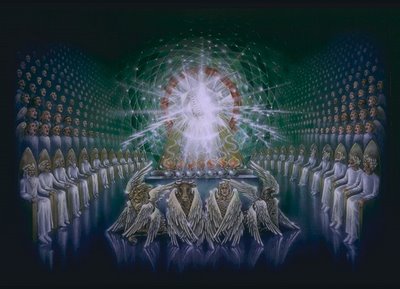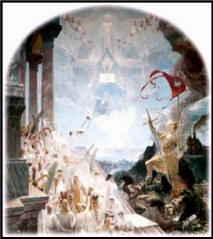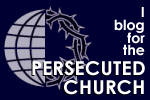
Question:
In Paul’s letters, who is God, which is to say, how is God’s identity shaped by the scriptures of Israel and the Christ event? Answer this question in one or two sentences. Then answer this: How does the identity of God, shaped as it is by the scriptures of Israel and the Christ event, impact an argument that Paul makes about who God’s people are (ecclesiology) or what they should do (ethics) in any one passage of your choosing (restricted to Romans through Thessalonians, not the Pastoral Epistles)?
Answer:
Paul brings the God of the Old Testament who was the God of the Hebrews into a new light to the rest of the world when Jesus was crucified and resurrected...Paul is bringing this same Hebrew God to the Gentiles as the Creator of all, the God of both Jew and Gentile, the God of all.
Paul's identity of God's people shaped by the scriptures of Israel and the Christ event is best summarized by the following passage:
(My statement is that the identification of God's people is the church...not a denomination...but the body of believers be it a converted Jew or converted Gentile...)
1 Corinthians 12:12-27 (New International Version)
12The body is a unit, though it is made up of many parts; and though all its parts are many, they form one body. So it is with Christ. 13For we were all baptized by one Spirit into one body—whether Jews or Greeks, slave or free—and we were all given the one Spirit to drink.
14Now the body is not made up of one part but of many. 15If the foot should say, "Because I am not a hand, I do not belong to the body," it would not for that reason cease to be part of the body. 16And if the ear should say, "Because I am not an eye, I do not belong to the body," it would not for that reason cease to be part of the body. 17If the whole body were an eye, where would the sense of hearing be? If the whole body were an ear, where would the sense of smell be? 18But in fact God has arranged the parts in the body, every one of them, just as he wanted them to be. 19If they were all one part, where would the body be? 20As it is, there are many parts, but one body.
21The eye cannot say to the hand, "I don't need you!" And the head cannot say to the feet, "I don't need you!" 22On the contrary, those parts of the body that seem to be weaker are indispensable, 23and the parts that we think are less honorable we treat with special honor. And the parts that are unpresentable are treated with special modesty, 24while our presentable parts need no special treatment. But God has combined the members of the body and has given greater honor to the parts that lacked it, 25so that there should be no division in the body, but that its parts should have equal concern for each other. 26If one part suffers, every part suffers with it; if one part is honored, every part rejoices with it.
27Now you are the body of Christ, and each one of you is a part of it.
Labels: Seminary


























